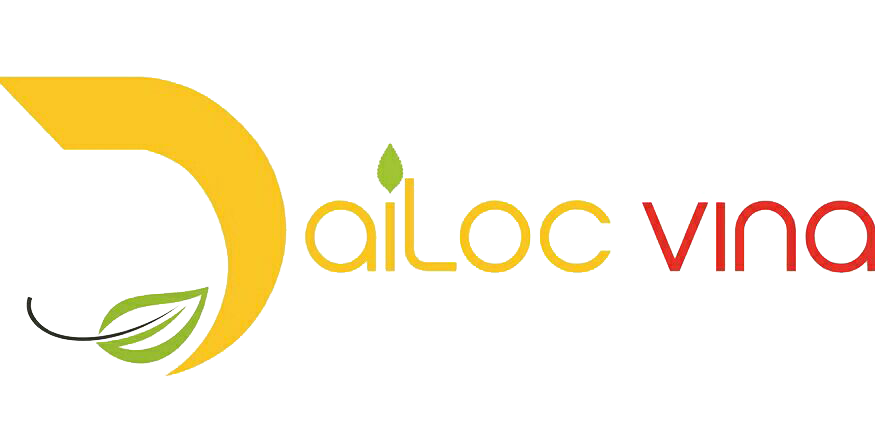News
COCO PEAT MIXED WITH PERLITE—GROWING MEDIA
What is coco peat?
Coco peat, often known as coir, is popular among many clients, including potted planters, hydroponic growers, professional caretakers, and even home gardeners. Its popularity is rising, thanks in part to its durability, utility, and resemblance to soil and peat moss. It is also an environmentally friendly alternative to traditional peat moss, as it is made from the natural fibers found in coconut husks.
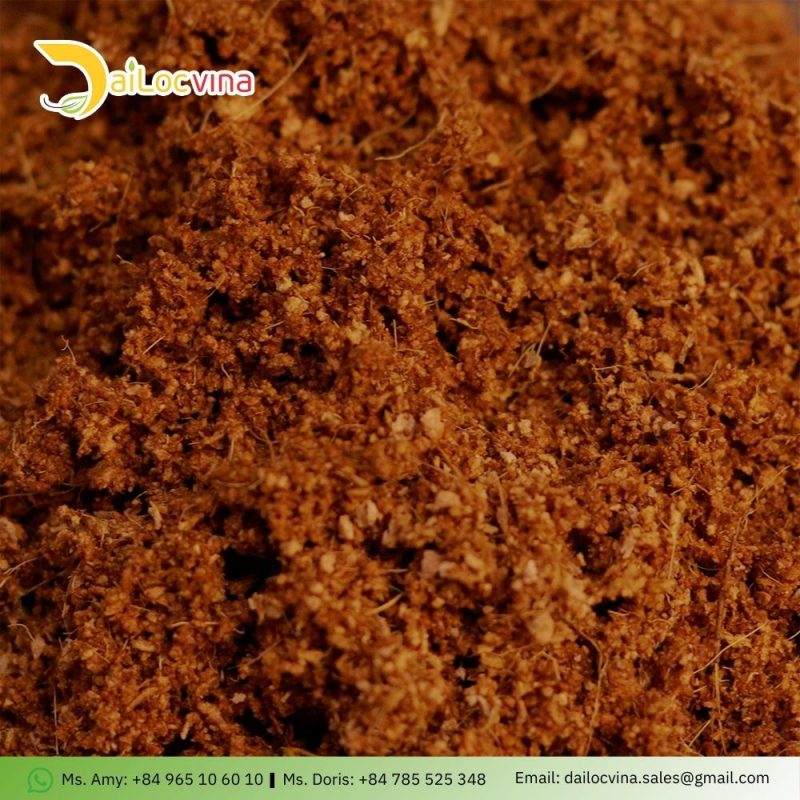
Coco peat is produced from fibers found between the coconut shell and the outer shell. It is reasonably simple to cultivate a growth medium that is becoming popular as a hydroponic substrate and in grow mixtures across the world. Coco peat is also environmentally friendly and renewable.
What is perlite?
Perlite is ore that has been cooked to a high temperature in a kiln until it reaches the size of popcorn. This makes it incredibly light and allows it to hold air, which is extremely useful for growers who want to maintain consistent oxygen levels in the root zone. This is especially important for hydroponic systems where the plant roots are submerged in water.
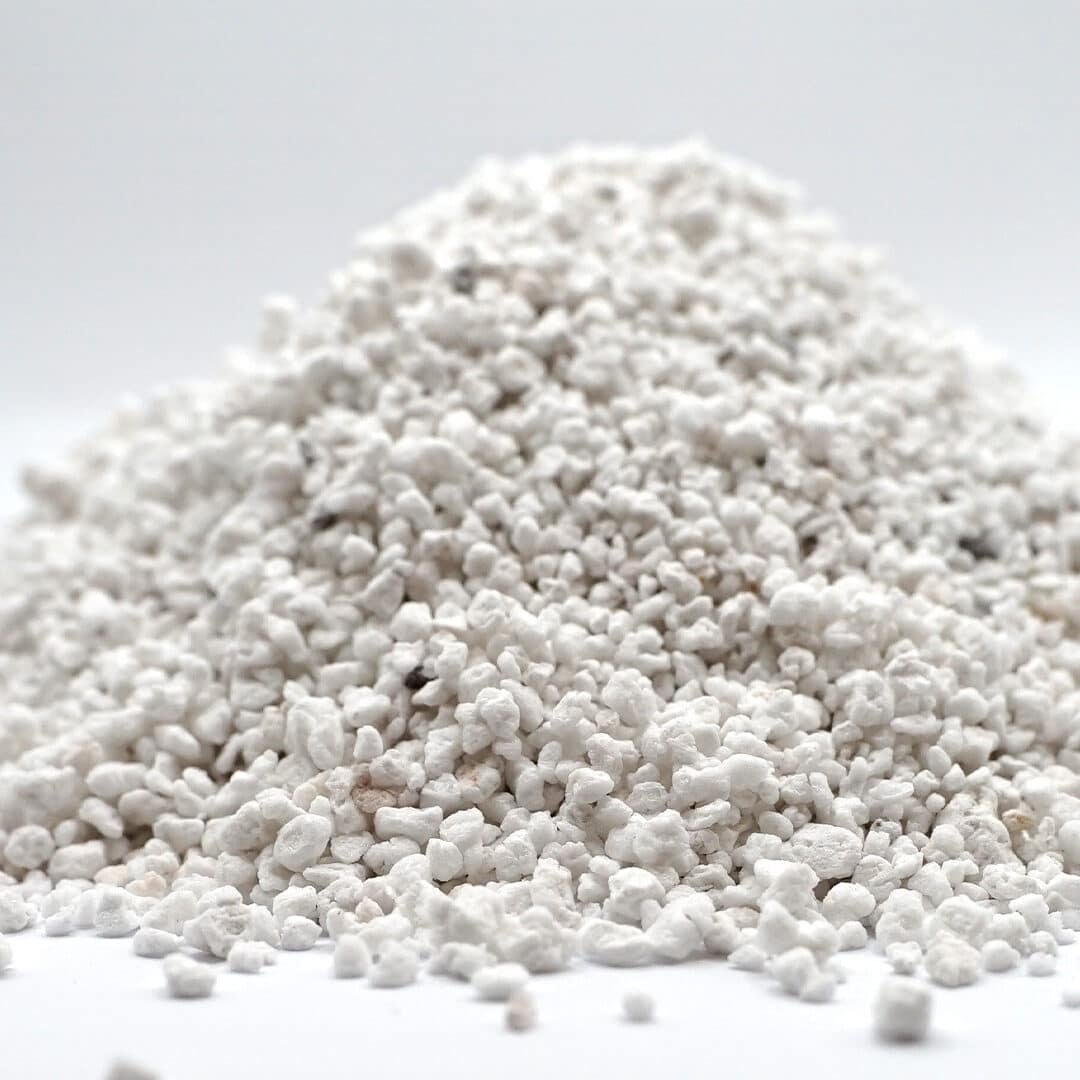
Perlite and coco peat, however, each have advantages and disadvantages. Growers should consider many criteria before making a decision, including the product’s weight, ease of movement, pH impact, potential for plant harm or disease, size and texture, etc. High plant capacity for cation exchange. This will allow for better nutrient availability in the roots.
Coco peat mix with Perlite
Alternatives to cultivating plants. exhibiting excellent porosity, texture, and cation exchange capability. The ideal growing environment is produced by DaiLoc Vina, allowing the roots to expand and take up nutrients to support a quick metabolism. This results in healthier and more productive plants.
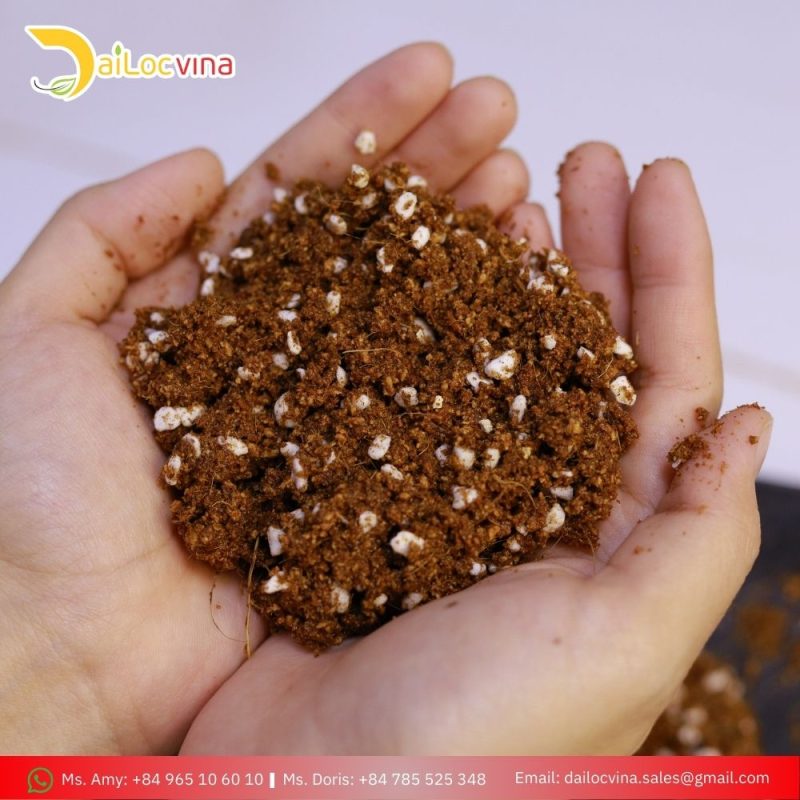
DaiLoc Vina is a plant growth medium that is a great alternative to potting soil and other traditional growing media. Coco peat is made from organic coconut shells and serves as an alternative to media made from coco peat and other traditional soils. It is also environmentally friendly and sustainable.
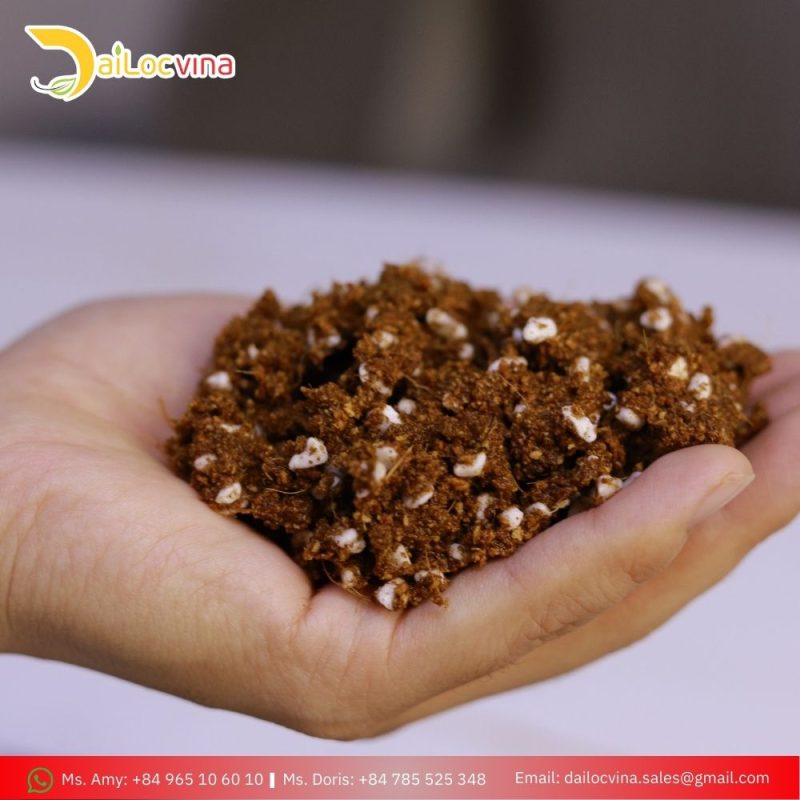
DaiLoc Vina combines 70% coco peat with 30% perlite to create a high-quality growing medium that is perfect for a variety of plants. Gardeners can feed more actively without worrying about waterlogging thanks to increased aeration and drainage.
What happens to the soil when perlite is added?
The coconut perlite soil mix breathes and drains more easily when additional perlite is added to the soil. It accomplishes this by modifying the soil’s structure from the bottom up, therefore promoting plant growth. While keeping the soil loose, it also modifies its texture.
To get the desired effects, you must properly mix the soil with perlite. Anyhow, it tends to clump together if you add too much perlite.
The substrate can also degrade the quality of the coco peat and inhibit root growth if the proper ratio of coco peat to perlite is not mixed. Furthermore, poor drainage and water retention in the soil might result from inappropriate mixing. It is important to thoroughly mix the coco peat and perlite to ensure a well-draining substrate that promotes healthy root growth.
Mixture of perlite and coco peat—DAILOCVINA Mixing ratio: 70% coco peat + 30% perlite
A premium coco peat growth medium combined with perlite, DaiLoc Vina, is used to cultivate crops. Because of its superior qualities and outcomes, DaiLoc Vina has been utilized as a growth substrate in professional horticulture for many years. This mixture is supplemented with perlite to provide ideal drainage and ventilation. Because perlite is lightweight, it holds onto water and lets more air get to the roots. The best substrate for quickly draining extra water is DaiLoc Vina. You don’t need to be concerned about overwatering your plants because of this. This product has been buffered to the proper pH and EC values for rapid growth, and excess salt has been removed throughout the production process to make it suitable for usage. Moreover, DaiLoc Vina doesn’t have any extra fertilizers, so it’s a good starting substrate for young plants or seedlings. Additionally, it is organic and free of any harmful chemicals. Therefore, it is safe for both the environment and for your plants.
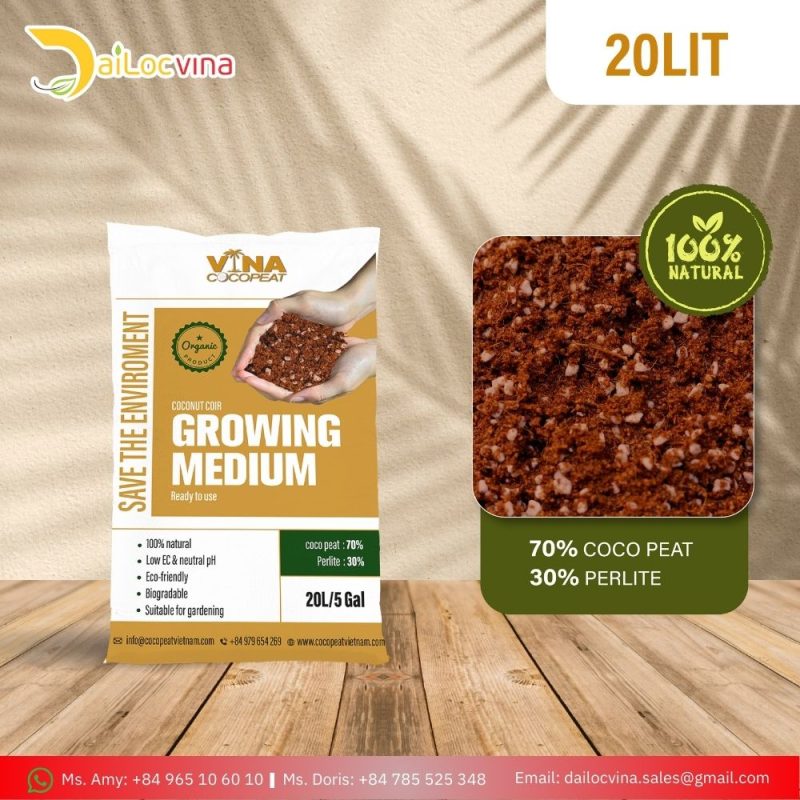
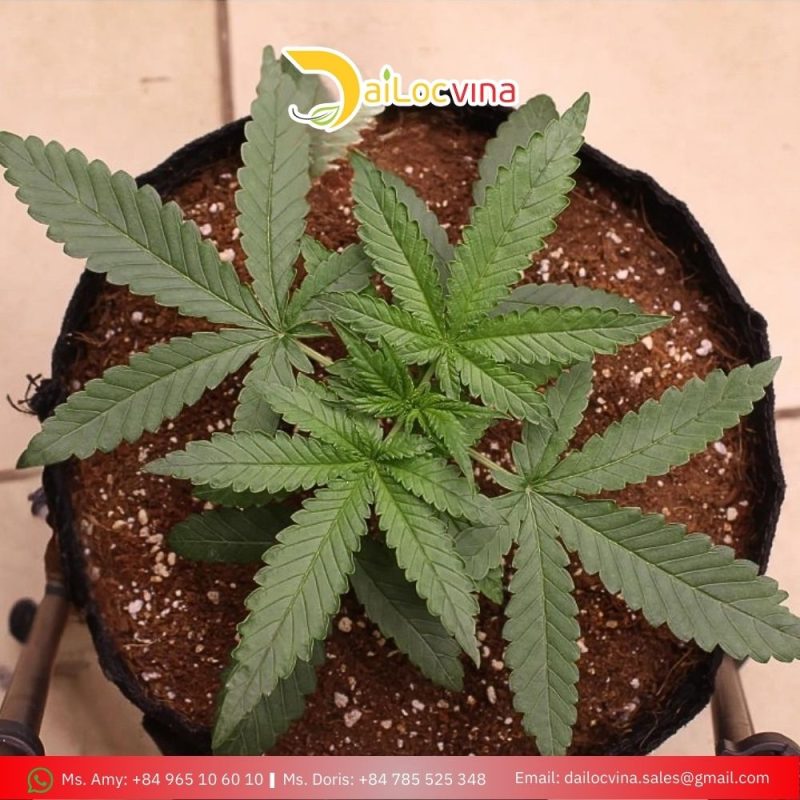
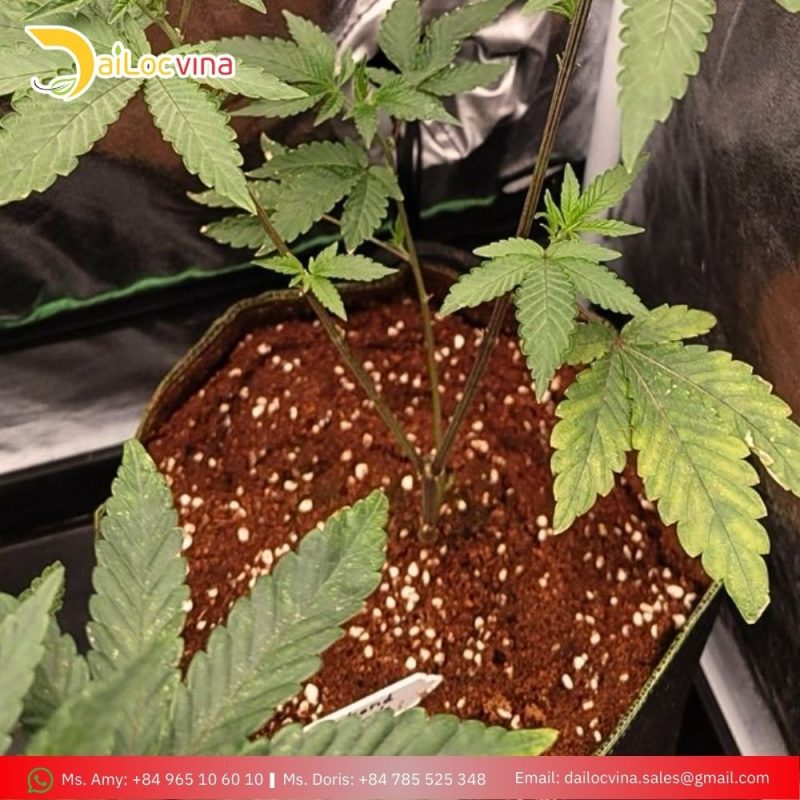
If you have inquiry, please contact our team sales:
Mr Ryan (Vietnam): 84 938244404 (Kakaotalk, Wechat, Whatsapp)
Ms. Doris (English): 84 785525348 (WhatsApp/ Wechat)
Ms. Amy (English) : 84 965106010 (WhatsApp/Wechat/Kakao)
Ms.Lan ( 한국 영업 담당자 ): 84 969273598 | Kakaotalk ID: hoailan98
阮秀钗 (中文): 84 933320776 微信ID:TuTram1008
阮祥薇(中文): 84397317401 微信ID:Nttv0608
Website: https://cocohitech.com/ (English)
Website: https://kr.cocohitech.com/ (Korea)
Website: https://cocohitech.jp/ (Japan )
Youtube: https://www.youtube.com/watch?v=a0tXthbbHNw
